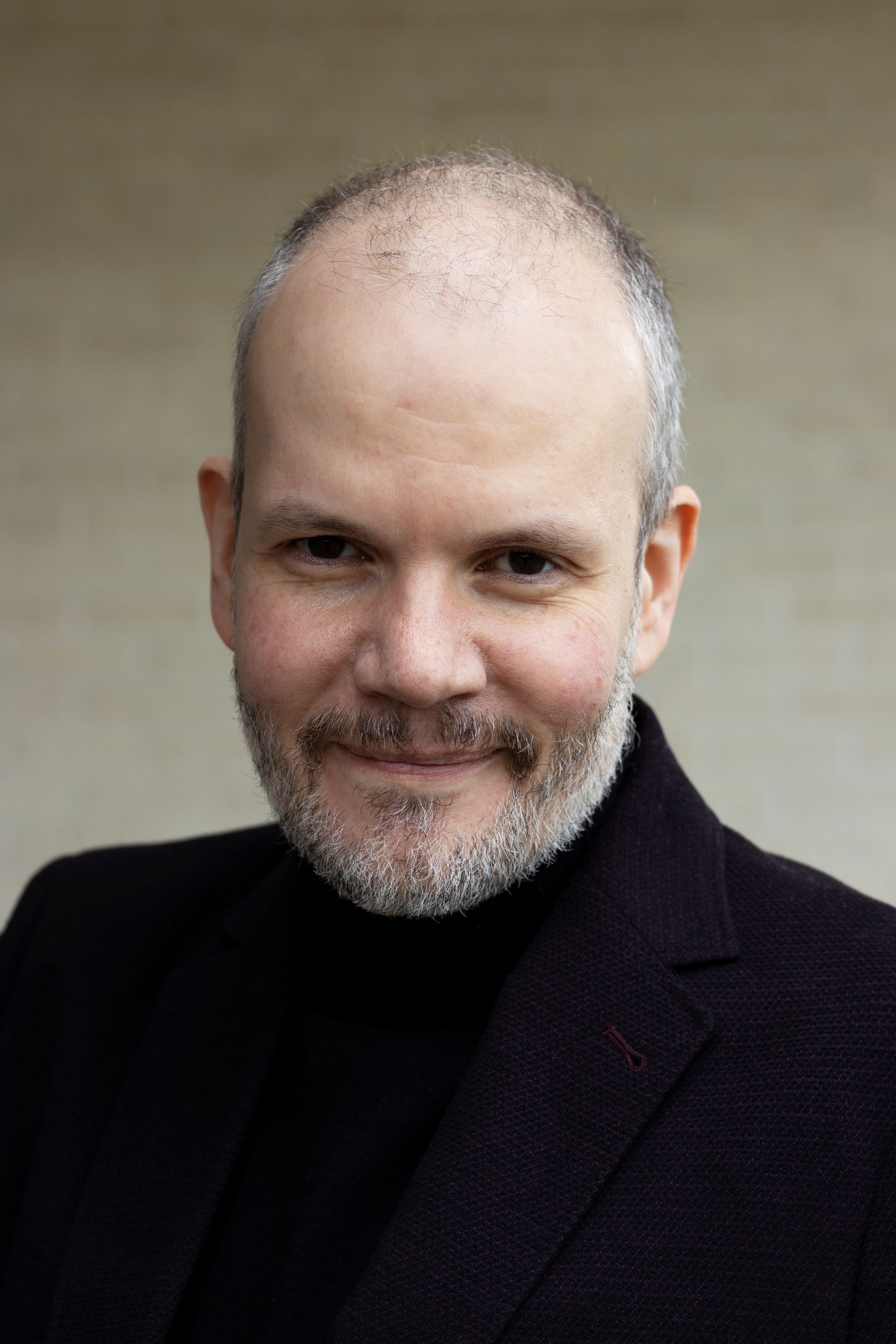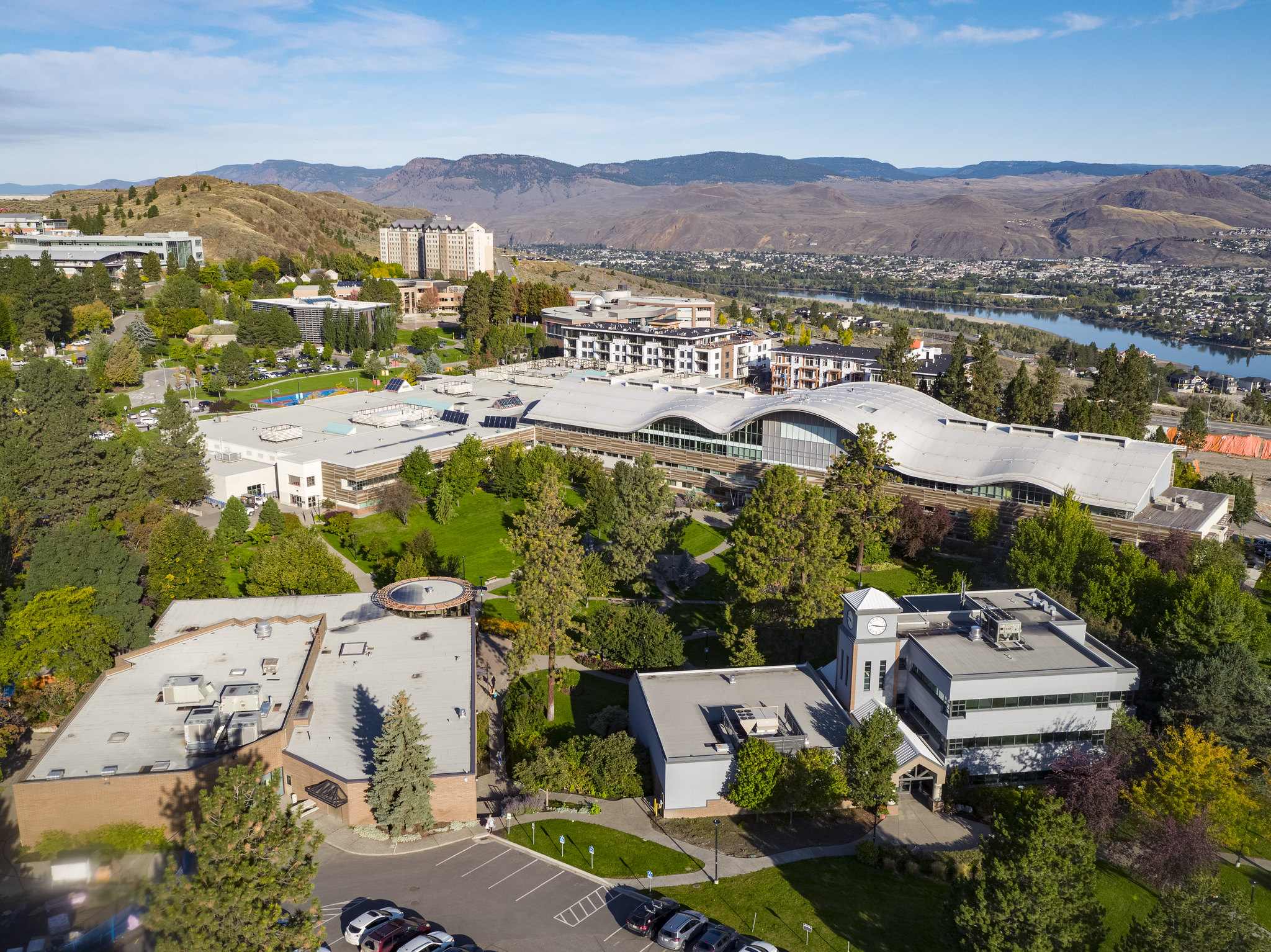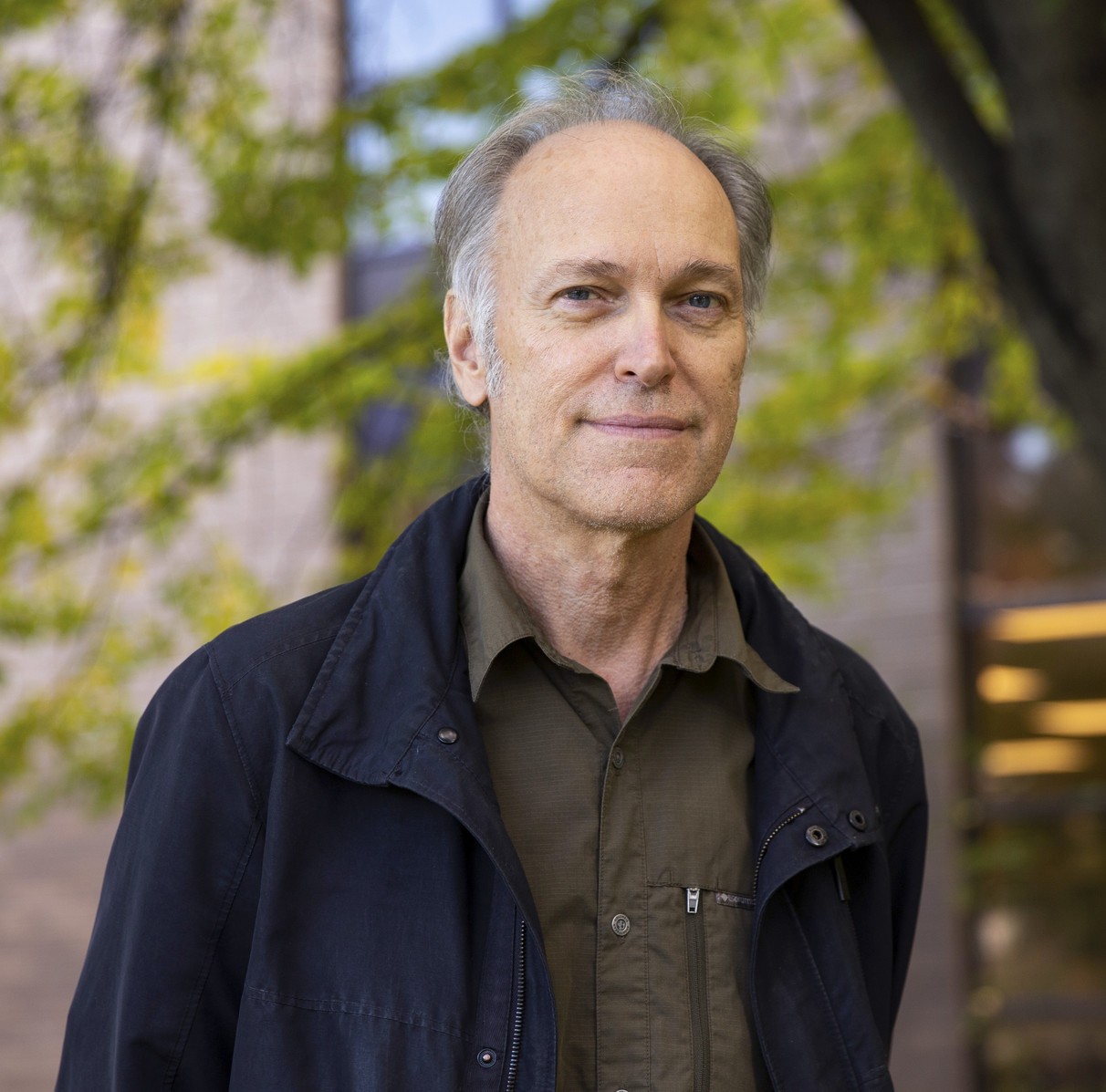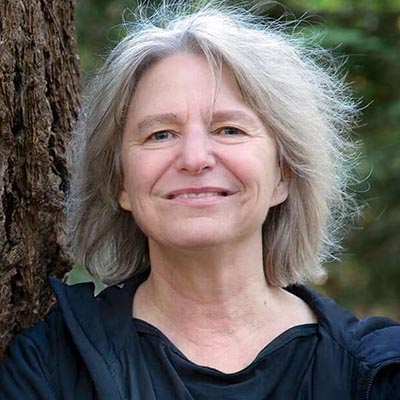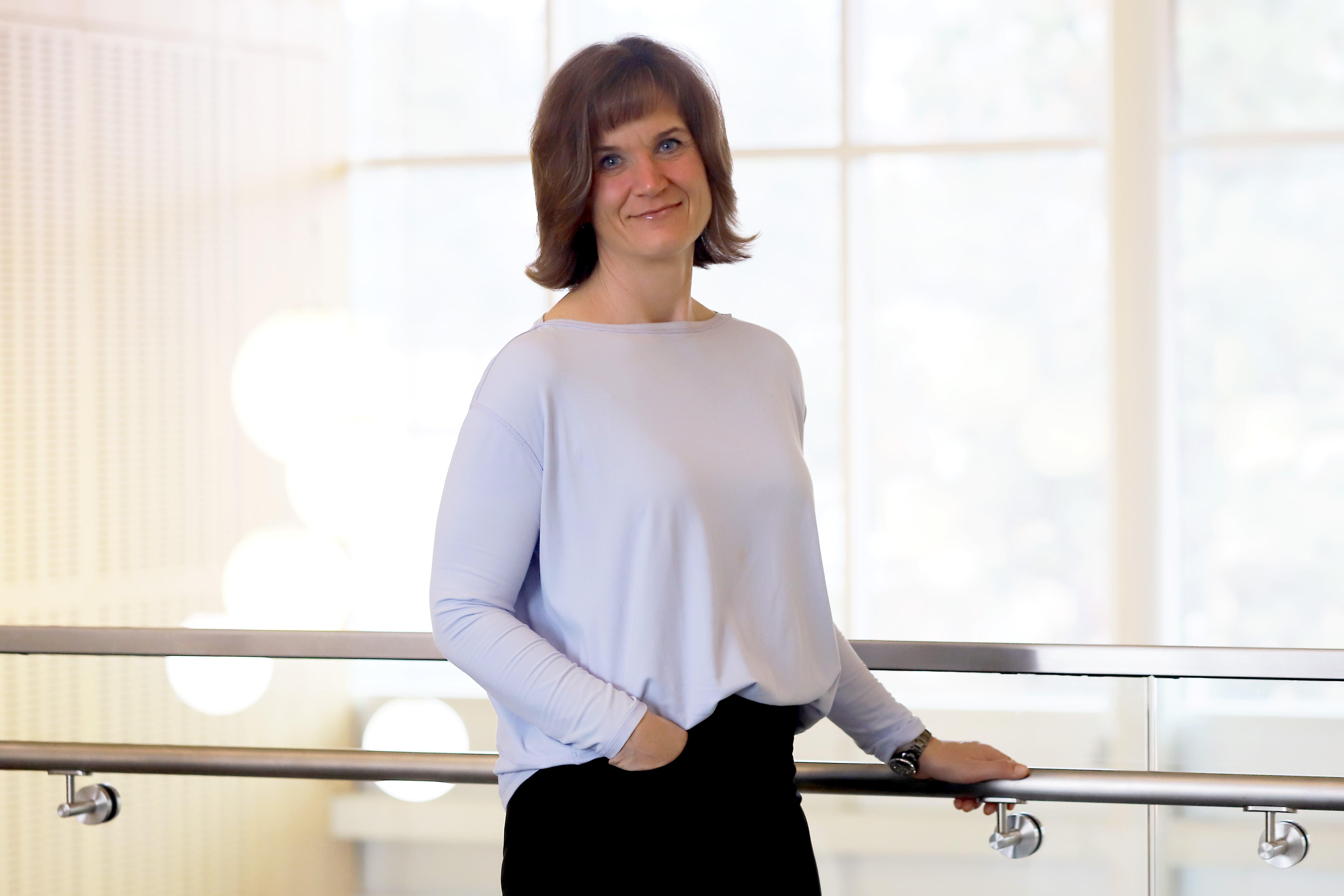Agenda & Schedule
Wednesday, February 18 – Grand Hall
8:30 – 9.00
Registration, coffee / tea / light breakfast
9:00 – 9:30
Opening words
Territorial welcome
TRU remarks from Dr. Shannon Wagner
9:30 – 11:00
Keynote Address: ‘From Catastrophe to Community’ Sean Holman
Sean Holman is the Wayne Crookes Professor of Environmental and Climate Journalism at the University of Victoria and founding director of the Climate Disaster Project, an award-winning international teaching newsroom that works with survivors to document and investigate their experiences. Before entering academia, Sean was an investigative journalist and documentary filmmaker in British Columbia. As a journalist, Sean was best known as the host and producer of the syndicated talk show Public Eye Radio. Sean's research focuses on how we use and misuse information, particularly against the backdrop of catastrophic climate change and biodiversity loss, as well as democratic decline.
11:00 – 12:00
Local Voices (a series of short presentations from local organizations)
12.00 – 1:00
Lunch
1.00 – 2:30
Collaborative Communities Roundtable
Collaborative Community Resilience and the City of Kamloops
2.30 – 2:45
Break
2:45 – 3:45
Livable Cities Conversation
Health and Well-being - Lessons from the Land
with Professor Rod McCormick & Jeneen Herns-Jensen (All my Relations, TRU)
3:45 – 4:30
TRU Tour of the Sustainability Powerhouse (Low-Carbon District Energy System)
Thursday, February 19 – Grand Hall and Terrace Room
8:30 – 8:45
Registration, coffee / tea / light breakfast
8:45 – 9:00
Opening words
Territorial welcome
9:00 – 11:30
Parallel Sessions
Biosphere Certification and Sustainable Tourism (TERRACE ROOM) (led by Tara Duncan)
Taking care of our Drinking Water (Grand hall)
(led by Satwinder Paul, this set of panel sessions runs all day, details below)
11:30 – 1:00
Lunch (Grand hall) including keynote
Keynote Address: ‘Going Feral: Lessons from a Marginalized Botany’ Lyn Baldwin
Lyn Baldwin is an award-winning teacher and plant conservation biologist who uses art and science to help mitigate society’s extinction of experience with the botanical world. As a teacher, Lyn has taught botany and ecology at TRU for more than two decades. As a researcher, Lyn has more recently focused on using her field journal art and creative writing to highlight the botanical stories that can be found in the gardens and farms, wetlands and forests of Secwepemcúl’ecw. These stories have been exhibited in science and art museums and published in literary magazines. Lyn’s first book, Drawing Botany Home: A Rooted Life, was published by Rocky Mountain Books in 2023.
1:00 – 2:30
Parallel Sessions.
Indigenous Architects (Terrace room) led by Dale Parkes.
Taking care of our Drinking Water (Grand hall) led by Satwinder Paul, this set of panel sessions runs all day, details below.
1.00 – 2:30
Collaborative Communities Roundtable
Collaborative Community Resilience and the City of Kamloops
2:30 – 3.00pm
Lessons learned from parallel sessions (Tara Duncan, Dale Parkes, & Satwinder Paul)
Closing remarks and looking to the future (Patrick Brouder)
2:45 – 3:45
Livable Cities Conversation
Health and Well-being - Lessons from the Land
with Professor Rod McCormick & Jeneen Herns-Jensen (All my Relations, TRU)
3:45 – 4:30
TRU Tour of the Sustainability Powerhouse (Low-Carbon District Energy System)
February 19, 2026 – Taking Care of Our Drinking Water
8:30 – 8:45
Registration, coffee / tea / light breakfast
8:45 – 9:00
Opening words
Territorial welcome
9:00 – 9:15
Introduction to the Sessions - Satwinder Paul
Biosphere Certification and Sustainable Tourism (TERRACE ROOM) (led by Tara Duncan)
9:15 – 10:00
Presentation # 1
Building Resilient Drinking Water Systems: Challenges and Sustainability Solutions in Interior BC - This presentation explores the complex and evolving challenges faced by drinking water suppliers in Interior British Columbia, a region increasingly shaped by drought, flooding, and wildfire impacts.
Drawing on real regional examples, the session will highlight how climate‑driven extremes are putting pressure on source water quality, storage capacity, and distribution systems—and what this means for long‑term water security. Participants will examine both green infrastructure and grey infrastructure focusing on how each plays a distinct role in building resilience.
By the end of the presentation, attendees will gain a richer understanding of - Practical, implementable strategies for improving sustainability—including watershed protection planning, infrastructure upgrades, adaptive management, and community partnerships and how combined green‑and‑grey approaches can enhance long‑term reliability and protect public health.
Presented by Rob Birtles: Rob Birtles has been working as an Environmental Health Officer and a Delegated Drinking Water Officer for 28 years. As part of his career, Rob has had the opportunity to engage with stakeholders around the province on questions about source water, treatment, regulations, emergency management and operations. Currently, Rob works with Interior Health where he supervises a team of Environmental Health Officers who are responsible for the inspection of small water systems. Rob is an active member of the Okanagan Basin Water Board – Water Stewardship Council, and a Co-Creator of the BC Online Help Centre for Small Water Suppliers.
10:00 – 10:45
Presentation # 2
City of Kamloops “Sustainability of Water Sources”: The City has many initiatives to manage the sustainability of our water source. Many of these initiatives have been identified and actioned through the City’s Water Master Plan and Source Water Protection Plan. Travis will share how the City identifies and manages risks to our drinking water supply.
- What risks does the City face in our watershed? From fuel spills to drought and watermain breaks; the risks to water supply are dynamic.
- What mitigation measures has the City put in place to manage these risks? Regulatory awareness and pro-active planning are key tools.
- How is the City managing risks from emerging information on water contaminants (PFAS/PFOS/DBPs)?
The City is also in the process of completing a Source Water Climate Change Adaptation Study. An overview will be provided on how the City is looking forward to plan for long term sustainable water supply.
Presented by: Travis Pahl is a Utilities Engineer with the City of Kamloops, specializing in water system planning. With a degree in chemical engineering and more than a decade of experience in infrastructure planning and delivery, Travis helps shape long term utility planning at the City. He is responsible for ensuring that Kamloops’ utility networks are planned and expanded in a sustainable manner while accommodating future growth. In 2023, Travis led the update of the City’s Water Master Plan, guiding a comprehensive review of system performance, future demands, and sustainable infrastructure investment. He chairs the City’s Water Quality Technical Advisory Group.
10:45 – 11:30
Presentation #3
Recovery, Resilience, and Water Security: Merritt’s Flood Mitigation Journey
Sean Strang, Director of Flood Mitigation & Diana Linde, Communications Advisor
City of Merritt - Flood Mitigation Department
In this session, Sean Strang and Diana Linde will share how Merritt has approached flood recovery and risk reduction, how the work continues today, and how major infrastructure and naturalization projects are helping protect the City’s critical water and wastewater systems.
Using real-world examples from current projects, the presentation will highlight how engineered infrastructure, restored river systems, and community-driven planning work together to strengthen watershed resilience and safeguard drinking water and essential services.
Participants will learn how Merritt has built a collaborative approach with Indigenous partners, government agencies, engineers, environmental experts, and community members. Key themes include integrated flood management, river naturalization, land-use planning, and strategies that support long-term water security and community safety.
The session will also explore lessons learned, evolving best practices, and how Merritt’s experience can inform other communities working toward climate-resilient water management and disaster recovery.
Department Bio
City of Merritt, Flood Mitigation Department
The City of Merritt’s Flood Mitigation Department leads a community-focused effort to reduce flood risk, strengthen critical infrastructure, and enhance watershed resilience.
Established following the 2021 atmospheric river, the team works in close partnership with local Indigenous Nations, provincial and federal agencies, engineers, environmental specialists, and community members to rebuild in a way that is safer, smarter, and more sustainable.
Their work includes the design and construction of new dike systems, restoration of natural river channels and advancement of ecological initiatives such as the STUWI(x) Naturalization Project. Guided by both cultural leadership and technical expertise, the team integrates traditional knowledge, environmental science, and community priorities into every stage of project planning and delivery.
With a strong commitment to transparency and collaboration, the department provides regular public updates, hosts site tours, supports education partnerships, and develops accessible tools to help residents understand how flood mitigation protects homes, businesses, infrastructure, and water systems.
Together with the community, the City of Merritt Flood Mitigation Team is building a safer, more resilient future.
Learn more
11.30 – 1:00
Lunch, including keynote – Lyn Baldwin
1:00 – 1:45
Presentation # 4
Drinking Water Quality After Wildfires: Risks, Impacts, and Solutions:
Wildfires are becoming increasingly frequent and severe, posing significant challenges to drinking water safety. This presentation explores how wildfires affect water sources, treatment systems, and distribution networks. We will examine the chemical and biological contaminants introduced by fire events, such as heavy metals, ash, and organic compounds, and their implications for human health. The session will also highlight monitoring strategies, emergency response measures, and long-term resilience planning for water utilities and communities. Attendees will gain insights into best practices for safeguarding water quality in the aftermath of wildfires.
Presented by: Warren Brown, Operations and Maintenance Manager for the Lytton First Nation. - Warren graduated from Thompson Rivers University with a diploma in Water Treatment Technology. He manages a crew of 10 staff, Band Buildings, 30+ km of roads, 12 Water Systems. He has been with Lytton First Nations since 2002, received Small Water System certification the same year. Became the manager in 2016. He is a recipient of many awards and accolades - 2018, EOCP Water Operator of the Year; 2021 Water Canada; Water Operator and Water Steward, Nominee for the 2022 National First Nation Water Leadership Award and recipient of the 2023 National First Nation Water Leadership Award.>
1:45 – 2:30
Presentation # 5
Managing Water Supply Challenges: When River Levels Limit Treatment Plant Operations.
Seasonal fluctuations in river water levels can significantly impact the ability of water treatment plants to draw water consistently throughout the year. This presentation explores the causes of low river levels, including climate variability, drought, and upstream water use, and their implications for water utilities. Brad will discuss practical strategies utilities can adopt, such as alternative water sources, storage solutions, demand management, and infrastructure upgrades to ensure reliable drinking water supply. Attendees will gain insights into risk assessment, contingency planning, and long-term resilience measures to address this growing challenge.
Presented by: Bradley Severin:Brad is a Utility Systems Manager and Senior Operator at Rivershore Utilities in Kamloops, BC. He holds certification in Water Treatment Level 2, Wastewater Multi Utility Level 2, Water Distribution Multi Utility Level 1 and Wastewater Collections multi utility level 1. He spent a co-op term working at the McLoughlin Point Wastewater Plant in Victoria, BC. He graduated from Thompson Rivers University with a Diploma in Water & Wastewater Technology and from time to time, he teaches in the continuing studies program. He holds the honour of being selected for a valedictorian for his graduating class.
2:30 – 3:00
Parallel Session Summary and Conference Closing Remarks
Lessons learned from parallel sessions (Tara Duncan, Dale Parkes, & Satwinder Paul)
Closing remarks and looking to the future (Patrick Brouder)
